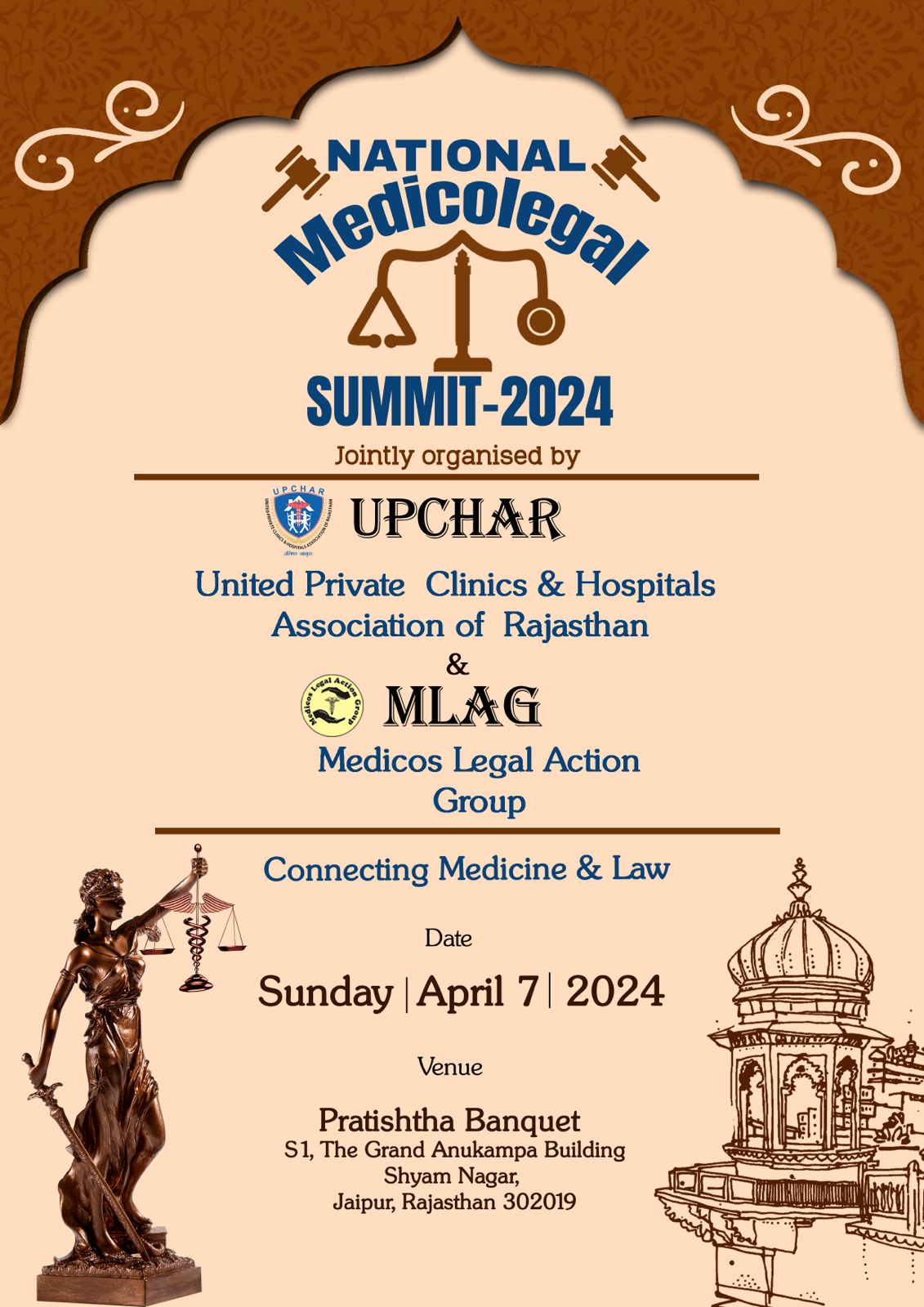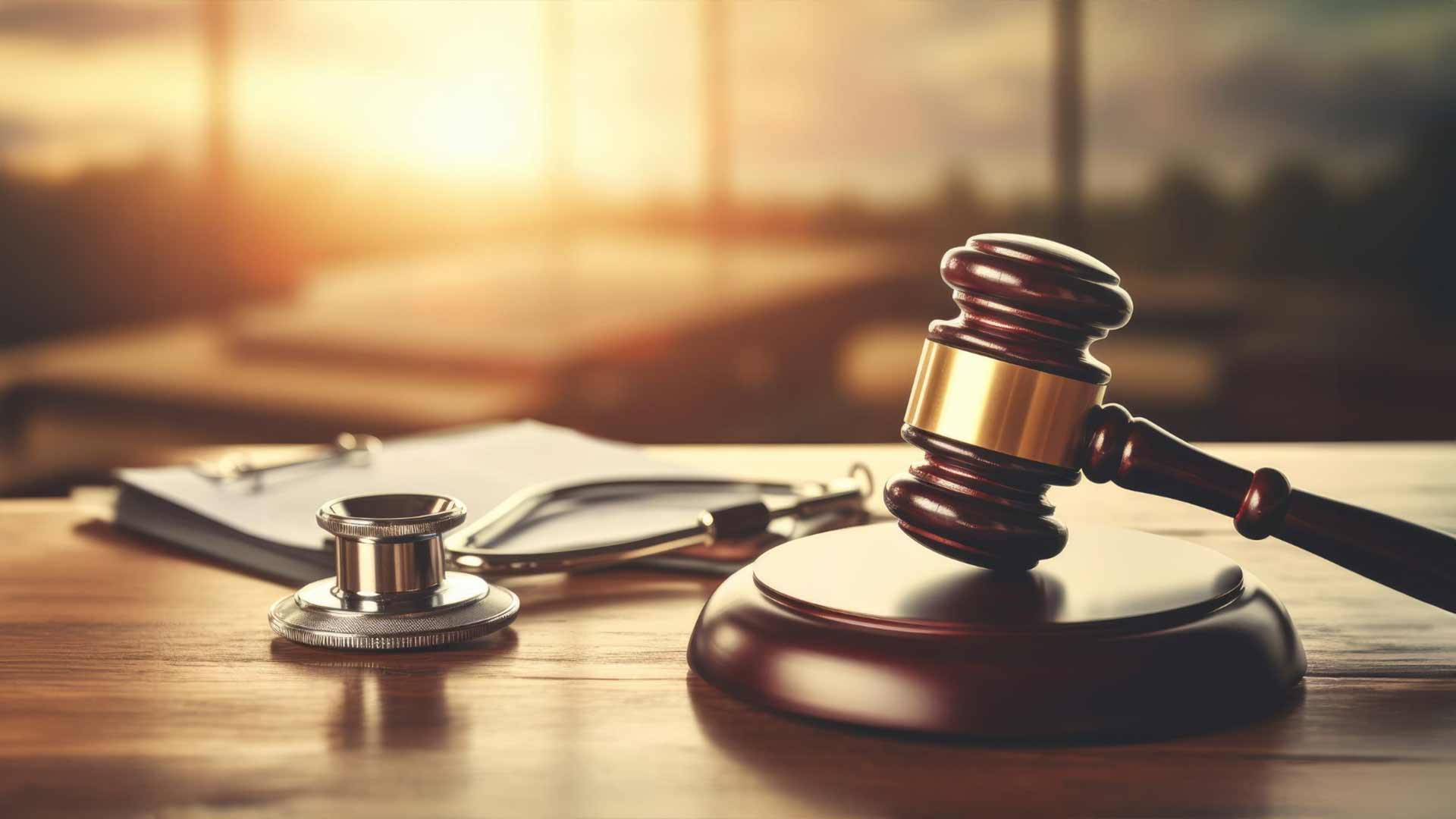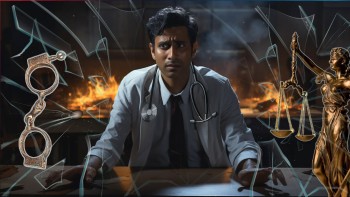The Indian healthcare landscape is undergoing a significant transformation. As medical advancements accelerate and patient expectations rise, so too does the medico-legal terrain for doctors. The unfortunate reality is a growing number of medico-legal cases against healthcare professionals. This article delves into the critical need for doctors in India to stay up-to-date on medico-legal issues and the benefits of attending conferences focused on this evolving field.
The Alarming Rise of Medico-Legal Cases in India
There's a palpable sense of unease among the Indian medical fraternity. News headlines scream about doctors facing lawsuits and even imprisonment for alleged negligence. Studies like one published in the National Library of Medicine reveal a concerning trend – a significant portion of neurosurgeons believe medico-legal suits are on the rise [1]. This perception is backed by anecdotal evidence and reports of overburdened courts handling medical negligence cases.
Several factors contribute to this rise. Increased public awareness of rights, rising healthcare costs leading to higher patient expectations, and a lack of clear communication between doctors and patients can all fuel medico-legal disputes. Furthermore, media portrayals of sensational medical errors can exacerbate public anxieties and distrust.
The Heavy Price of Negligence - Financial and Emotional Toll
The consequences of a medico-legal case can be devastating for doctors. Financial penalties can be crippling, threatening careers and livelihoods. Even if ultimately exonerated, the legal process itself can be lengthy, stressful, and emotionally draining. The constant threat of litigation creates a climate of fear and defensiveness, hindering the doctor-patient relationship and potentially impacting patient care.

The Vicious Cycle of Violence Against Doctors
Adding another layer of complexity is the rise of violence against doctors. Frustrated patients or their families, fueled by misunderstandings or unrealistic expectations, may resort to physical aggression. This phenomenon creates a vicious cycle – doctors, fearing litigation and violence, may become more defensive in their interactions, which can further strain the doctor-patient bond.
Why Staying Updated on Medico-Legal Issues is Crucial
In this demanding environment, staying current on medico-legal issues is not just advisable, it’s essential. Here’s why:
1. Risk Mitigation: Understanding the legal framework surrounding medical practice empowers doctors to navigate it with greater confidence. Knowledge of informed consent procedures, patient confidentiality guidelines, and the definition of medical negligence helps doctors avoid situations that might lead to litigation.
2. Improved Communication: Staying informed equips doctors to have more open and honest conversations with patients about risks, benefits, and treatment options. This fosters trust and reduces misunderstandings, a major factor in medico-legal disputes.
3. Enhanced Patient Care: When doctors are aware of their legal obligations, they can practice with greater clarity and focus on delivering optimal patient care. This includes maintaining meticulous medical records, documenting informed consent, and adhering to established protocols.
4. Building Trust with Patients: In a climate of rising medico-legal anxieties, demonstrating a strong understanding of legal and ethical obligations can reassure patients of a doctor’s commitment to their well-being. This can strengthen the doctor-patient relationship and lead to better treatment outcomes.
5. Personal and Professional Well-being: By actively managing medico-legal risks, doctors can reduce stress and anxiety stemming from the fear of litigation. This fosters a more positive and productive work environment, leading to increased job satisfaction and improved mental health.
Also Read-
Medico-Legal Conferences: A Powerful Tool for Staying Informed
Medico-legal conferences offer a valuable platform for doctors to stay abreast of evolving legal landscapes. Here are some of the key benefits of attending such conferences:
1. Expert Insights: These conferences feature renowned lawyers, judges, and medical ethicists who provide in-depth analysis of recent medico-legal rulings and case studies. Doctors gain valuable insights into how courts interpret legal principles in the context of medical practice.
2. Interactive Learning: Conferences often include interactive sessions and workshops where doctors can actively participate, ask questions, and clarify doubts. This fosters a collaborative learning environment and allows for peer-to-peer dialogue.
3. Networking Opportunities: Medico-legal conferences bring together doctors from various specializations and geographic locations. This provides an opportunity to network with colleagues, share experiences, and build a support system that can prove invaluable in navigating complex legal issues.
4. Keeping Pace with Change: The legal landscape surrounding medicine is constantly evolving. Conferences provide a platform for staying updated on the latest legal developments, ensuring doctors remain compliant with all relevant regulations.
5. Identifying Best Practices: Conferences often showcase presentations by seasoned doctors who share their successful strategies for minimizing medico-legal risks. These insights can be invaluable for developing effective risk management protocols in a doctor’s own practice.
Identifying Best Practices: Building a Robust Medico-Legal Defense
Conferences often showcase presentations by seasoned doctors who have successfully navigated the medico-legal minefield. These presentations are not merely theoretical discussions – they offer practical, real-world strategies for minimizing medico-legal risks in day-to-day practice.
Here are some key areas where you can glean valuable insights:
- Informed Consent Techniques: Experienced doctors can share effective methods for obtaining informed consent, ensuring patients understand the risks, benefits, and alternatives associated with treatment. This includes tips for documenting consent properly and addressing patient anxieties.
- Communication Strategies: Building strong communication skills goes a long way in mitigating medico-legal risks. Conferences might feature presentations on fostering open and honest communication with patients, managing unrealistic expectations, and effectively documenting patient interactions.
- Recordkeeping Practices: Meticulous medical records are vital for defending against medico-legal claims. Presentations by experienced doctors can shed light on best practices for documentation, highlighting the importance of clear, concise, and objective entries.
- Risk Management Protocols: Conferences may showcase successful risk management protocols implemented in various medical settings. These insights can be invaluable for developing a customized risk management plan for your own practice, addressing potential vulnerabilities and minimizing the likelihood of legal disputes.
By actively seeking out and implementing these best practices gleaned from experienced colleagues, doctors can build a more robust medico-legal defense. This proactive approach not only safeguards their careers but also fosters a culture of safety and trust within the doctor-patient relationship, ultimately leading to better patient care.
Conclusion
The Indian healthcare landscape demands a proactive approach to medico-legal issues. The ever-evolving legal landscape, rising patient expectations, and increasing media scrutiny necessitate a commitment to staying informed. By attending medico-legal conferences, engaging in ongoing learning activities, and implementing best practices shared by experienced colleagues, doctors can navigate the complex medico-legal terrain with greater confidence. This proactive approach fosters a more positive and productive environment for both doctors and patients, ensuring the delivery of high-quality healthcare in India.
(Dr Raj Shekhar Yadav is a senior physician, blogger and social media influencer.He tweets @citybrr.Views are personal)











Recent comments
Latest Comments section by users